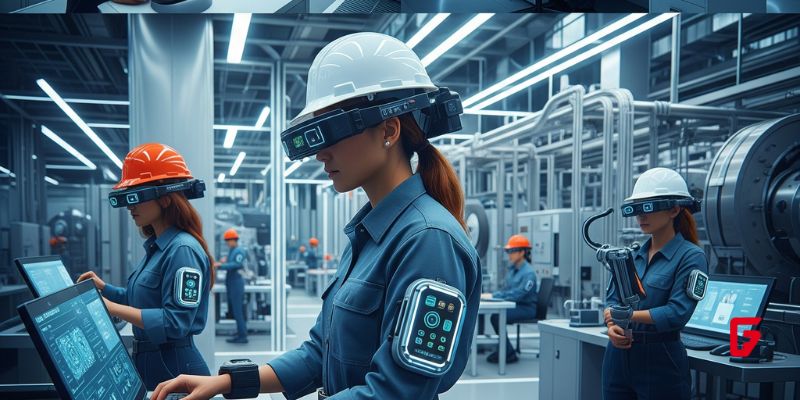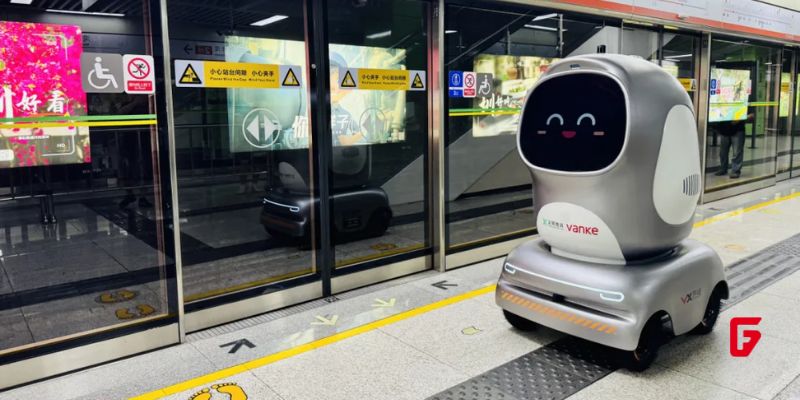HaloTech Secures €10 Million to Accelerate AI-Driven Industrial Safety

Madrid’s HaloTech secures €10M to boost its AI-driven industrial safety platform. The funding will expand its HALO devices, factories, and global market presence.
Elon Musk Unveils Kid-Friendly “Baby Grok” AI: Real Child-Safe Solution?

Baby Grok is Elon Musk’s answer to safer, child-friendly AI. Discover how this new chatbot from xAI brings parental controls, educational content, and a tightly moderated environment for young users.
Riding the Rails: Shenzhen’s Penguin Robots Are Redefining Underground Deliveries

In Shenzhen, a fleet of AI-powered penguin robots now delivers goods to over 100 7-Eleven stores via subway, transforming city logistics and redefining how smart cities approach retail supply.
Generative AI – futureTEKnow Glossary

Generative AI is a transformative area of artificial intelligence that uses advanced algorithms and large datasets to create new and original content—such as text, images, audio, videos, or code—in response to prompts or queries. Unlike traditional AI that classifies or predicts, generative AI models, including tools like ChatGPT, Midjourney, and DALL-E, learn patterns from vast information sources to generate novel and human-like outputs across industries. Businesses leverage generative AI to automate tasks, accelerate content creation, and innovate in fields like healthcare, finance, entertainment, and software development, unlocking unprecedented efficiency and creativity
Engineering General Intelligence (EGI) – futureTEKnow Glossary

Engineering General Intelligence (EGI) is an advanced artificial intelligence platform designed specifically for engineering and manufacturing. EGI leverages domain-specific large language models and agentic AI to automate, streamline, and accurately translate natural language prompts into precise engineering instructions, product documentation, and technical outputs. By optimizing every stage of the design-to-production lifecycle, EGI increases efficiency, reduces errors, and accelerates innovation for engineering teams. With seamless integration into popular industrial software, Engineering General Intelligence is transforming how engineers create, build, and document complex products, supporting higher productivity and healthier business outcomes.
Data Centers – futureTEKnow Glossary

A data center is a specialized facility that securely houses computer systems, storage devices, and networking equipment essential for managing, processing, and storing digital information. Equipped with reliable power, cooling systems, and advanced cybersecurity measures, data centers ensure high availability and performance for cloud computing, enterprise IT services, and emerging technologies. Understanding data centers is crucial for organizations seeking scalable, efficient, and resilient infrastructure solutions in today’s technology-driven world.
Blockchain – futureTEKnow Glossary

Blockchain is a decentralized digital ledger technology that records and secures transactions across a distributed network of computers, ensuring transparency, immutability, and resistance to tampering. Originally developed to power cryptocurrencies like Bitcoin, blockchain now enables secure, verifiable exchanges of value and data in sectors such as finance, supply chain, healthcare, and more.
Autonomous Mobile Robots (AMRs) – futureTEKnow Glossary

Autonomous Mobile Robots (AMRs) are intelligent robotic vehicles equipped with advanced sensors, artificial intelligence, and navigation software that enable them to move and operate independently within dynamic environments, such as warehouses, manufacturing plants, and logistics hubs.
Agentic AI – futureTEKnow Glossary

Agentic AI refers to advanced artificial intelligence systems capable of acting autonomously, making decisions, and performing multi-step tasks with minimal human intervention. Unlike traditional AI, agentic AI leverages multiple AI agents, often powered by large language models (LLMs) and complex reasoning, to plan, adapt, and achieve specific goals in real time.
Autonomous Driving System (ADS) – futureTEKnow Glossary

An Autonomous Driving System (ADS) refers to the hardware and software technologies that enable a vehicle to perform the entire dynamic driving task (DDT) without human intervention, covering both tactical and operational driving functions.
